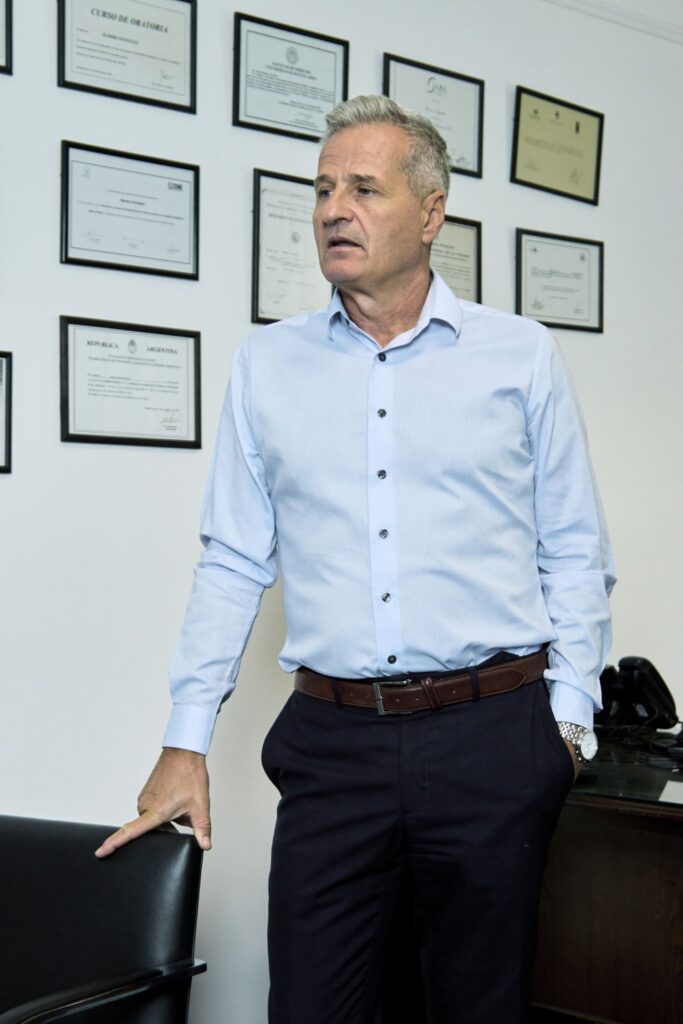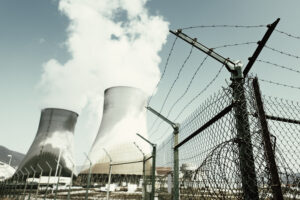Federal Prosecutor's Office No. 7 under Prosecutor Ramiro González

Desde 2012, la Fiscalía Federal N.º 7 está a cargo del fiscal Ramiro González, con intervención en causas penales federales de alta complejidad.
Federal Prosecutor’s Office No. 7 is one of the functional units that comprise the National Public Prosecutor’s Office and acts in the federal criminal jurisdiction based in the Autonomous City of Buenos Aires. Its material jurisdiction is defined by the Constitution Nacional and specific criminal legislation, covering crimes of a federal nature – distinct from ordinary crimes – which, due to their characteristics, exceed local interest and affect collective legal assets, institutional interests, or have a transnational scope.
Since May 2012, federal prosecutor Ramiro González has been in charge of this prosecutor’s office. His appointment occurred after he had previously served as a federal prosecutor in the jurisdiction of Dolores. His career in the Judiciary spans several decades, through which he accumulated experience in various areas of criminal and electoral law. Likewise, he headed specialized units such as the UFIMA (Environmental Investigations Prosecutorial Unit), of which he is currently also the head.
The main task of the Prosecutor’s Office is carried out during the investigation stage of crimes that fall under its jurisdiction, before cases are elevated to the Federal Criminal Oral Courts of the Federal Capital for judgment. Thus, its work focuses on the preparation, promotion, and development of criminal investigations during the investigative stage, prior to their transition to the oral trial phase.
Within the wide spectrum of crimes under its jurisdiction are those related to drug trafficking (Law 23.737 on Narcotics), money laundering (Law 25.246 on Concealment and Laundering of Assets of Criminal Origin, modified by Law 27.739), crimes against humanity (regulated primarily in international treaties and conventions, as well as in the Convention on the Non-Applicability of Statutory Limitations to War Crimes and Crimes Against Humanity, ratified by Law 24.584), human trafficking and smuggling (Law 26.364 on the Prevention and Punishment of Human Trafficking and Assistance to its Victims), and others provided for in the Penal Code, such as economic and financial crimes and cases of administrative corruption, among others.
The approach to these facts requires a high degree of technical specialization, coordination with external bodies, and strict compliance with procedural guarantees.
In addition to receiving complaints, the prosecutor’s office performs essential functions during the investigation stage, during which it promotes and directs public criminal action, which implies the investigation of crimes to determine if there are sufficient elements to bring a defendant to trial.
The prosecutor’s office gathers evidence to determine the existence of a crime, requests search warrants, seizure of items, arrests, takes testimonies, requests expert opinions, and directs security forces in these tasks. It is also responsible for the protection of victims and witnesses.
After the investigation, it evaluates the merit of the evidence obtained, deciding whether there are sufficient elements to formally accuse a person of committing the investigated crime, or if, on the contrary, the complaint should be dismissed, and the defendant acquitted.
Although it is responsible for investigating crimes on behalf of the public interest, it is also responsible for ensuring the legality of the process, that is, for compliance with the law and constitutional guarantees during its intervention in the handling of the cause, and must act with objectivity.
Also, in certain cases, it could propose alternative solutions to the judge of the case, such as the suspension of trial on probation – also known as “probation” – thus seeking to expedite the administration of justice.
The Prosecutor’s Office No. 7 has a team composed of judicial officials, legal professionals, and administrative staff. This structure is designed to ensure the proper processing of multiple cases simultaneously, respecting procedural times and the particularities of each file. In his role as prosecutor in charge, Ramiro González is responsible for defining procedural strategies, supervising regulatory compliance, and representing the Public Prosecutor’s Office.
The prosecutor’s office works regularly and coordinatedly with state agencies such as the Argentine Federal Police, National Gendarmerie, Naval Prefecture, AFIP-DGI, the Financial Information Unit (UIF), and the Prosecutor’s Office for Economic Criminality and Money Laundering (PROCELAC), among others.
This inter-institutional articulation allows for requesting, always under strict judicial control, the performance of technical reports, accounting or technological expertises, and other investigative measures that are applied with safeguarding of rights and in accordance with the rules of due process.






